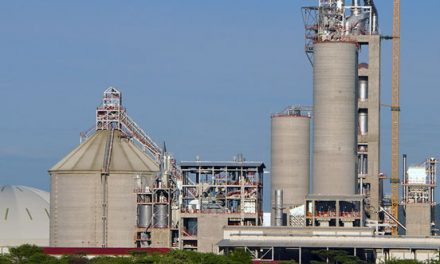
Horticultural sector flourish
Against the background that Namibia is generally described as one of the driest countries in the world, it is estimated that potentially about 50,000 ha of undeveloped land can be irrigated from the perennial rivers that borders the country and from underground water resources. Which means that developing this land can possibly increase horticulture production in the country and in turn contribute to economic development.
According to the National Horticulture Manager, Mubusisi Mabuku, the horticulture industry in Namibia is growing rapidly due to the increase in demand of fresh produce.
In 2004, the Namibia Agronomic Board initiated the Horticulture Market Share Promotion in order to stimulate horticulture production in the country and promote the sales of locally produced fresh fruit and vegetables.
He said that this initiative was set up to help encourage marketing of locally produced fresh produce and it has had a positive impact to date. “The market share promotion started at below 10% a few years ago but has grown to 37.5% as of this year.”
Mabuku said that they are living up to their aim as they are carrying out their mandate to stimulate and market the local production of horticultural products.
He told the Economist that the increment in the market share promotion is an indication that there is definitely a rising demand in the export as well as local market for fresh produce but this demand can only be fulfilled when local producers can seasonally produce more than the consumption in Namibia. “One good example is grapes of which 99.5% is exported to Europe and other African countries as well as products such as potatoes and onions which are exported to Angola and South Africa.”
He said that cabbages, potatoes, bananas, onions and tomatoes are the most popular produce in the local markets and this is attributed to high demand and the ease at which they can grow since they can tolerate different climatic conditions. This is one of the limitations that the horticultural industry is facing as some horticultural products cannot be produced in certain times of the year or in certain regions,” said Mabuku.
“A multiple other factors hinder production such as the availability of water, transport from area of production to the consumer and the lack of access to credit facilities for communal farmers.”
Furthermore, Mabuku said that there is a need to initiate value adding activities that will help transform the industry into an agro-processing one so as to add value to most of Namibia’s fresh fruits and vegetables. “Value-addition, if achieved could then help create employment opportunities to the masses of those unemployed especially the unskilled.”
Developing the horticulture sector will further benefit the country by creating employment opportunities as unemployment is one of the major economic challenges confronting the country and developing the horticultural sector could stimulate the development of local processing facilities. An increase in local production will also improve the balance of payment since less produce will have to be imported.












































